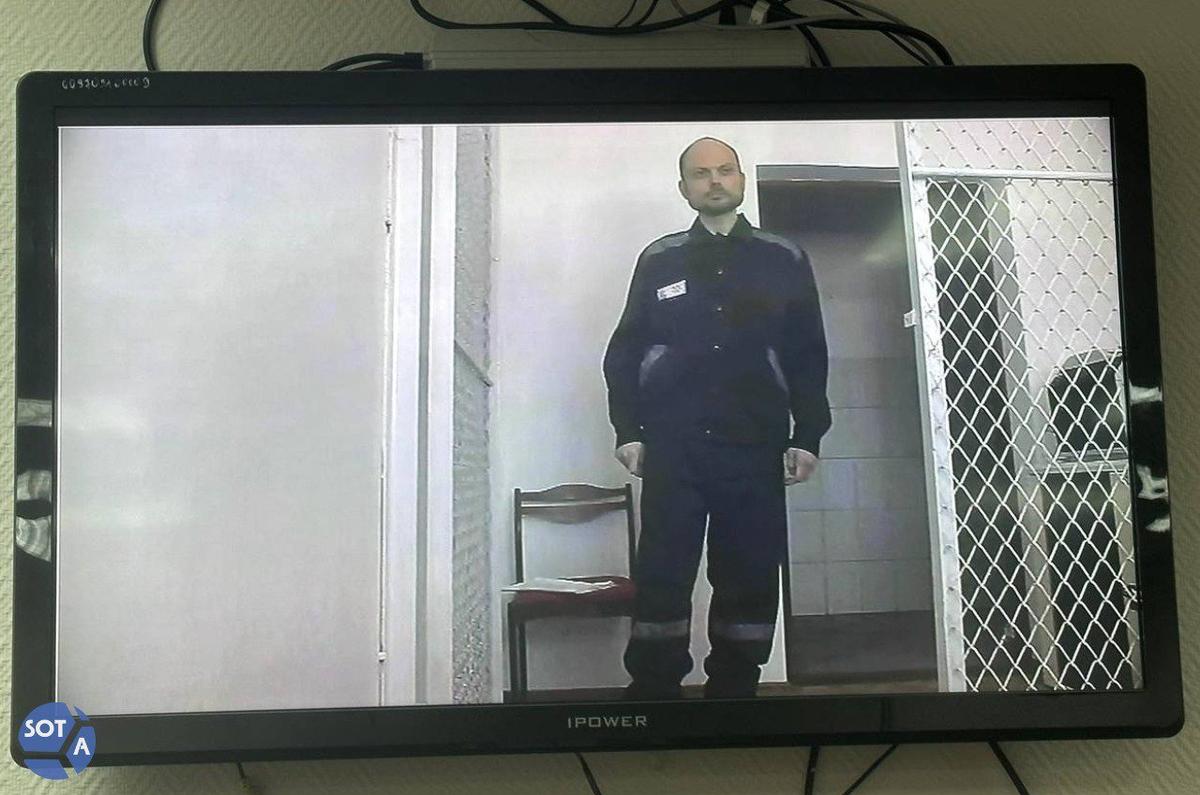




Photo: SOTAvision
Russian opposition politician Vladimir Kara-Murza has been granted access to his lawyer in the prison hospital to which he was transferred last week, his lawyer said on Wednesday.
Kara Murza remained in a “stable” condition, Vadim Prokhorov wrote on Facebook, reiterating however that his client suffers from polyneuropathy — severe nerve damage likely caused by two poisoning attempts in 2015 and 2017. Polyneuropathy is a life-threatening condition that should have prevented Kara-Murza from serving his sentence in prison.
Kara-Murza was transferred from the Siberian penal colony where he had been serving a 25-year sentence to a hospital in Western Siberia’s Omsk region on Thursday evening and his lawyer had not been permitted to visit him there until now.
Prokhorov added that Kara-Murza had been sent to the hospital for a “medical examination”, though he stressed that he had not been told what kind of examination was being carried out.
Kara-Murza, one of Russia’s highest-profile opposition politicians and political prisoners, was convicted of treason, involvement with “undesirable organisations” and “disseminating false information” about the Russian military in April 2023, and was sent to a notoriously tough Siberian penal colony where he has been frequently placed in solitary confinement, despite his declining health.
Asked at a press briefing on Wednesday why Kara-Murza had been denied access to his lawyer in hospital, Kremlin spokesperson Dmitry Peskov replied that the Kremlin “was not in a position to monitor the situation” and recommended journalists contact the Federal Penitentiary Service with their inquiries instead.
